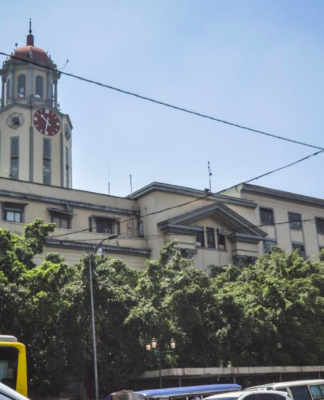ONLY about 200 students enrolled in the University’s Reserve Officers’ Training Corps (ROTC) for Academic Year 2016-2017, a drastic decline from previous years because of lack of freshmen as a result of the painful K to 12 transition.
The figure represents an 80-percent drop from 1,115 cadets last year, amid efforts by the Duterte administration to make ROTC training mandatory anew to help the government’s anti-drug campaign.
Col. Edgar Nigos, the UST commandant, told the Varsitarian the number of ROTC enrollees had been declining compared with the other two National Service Training Program (NSTP) components, Civic Welfare Training Service (CWTS) and Literacy Training Service (LTS).
Cadet Col. Karla Guste, corps commander of the UST Golden Corps of Cadets, claimed students perceived ROTC as the more strenuous NSTP program compared with CWTS and LTS.
Some students also have the misimpression that there’s hazing, she added.
“Honestly, it is a bit disappointing to us. For the past few years, the numbers of UST ROTC enrollees [stood at] 1,000 cadets more or less,” Guste told the Varsitarian.
“My opinion is that this is due to waning support [for] the Reservists Act (Republic Act 7077), specifically the ROTC program,” she added.
The Armed Forces of the Philippines needs four reservists for every one regular member, and UST has played a huge role in producing Army reservists for almost 80 years due to its large student population, she pointed out.
Nigos however said he expected ROTC enrollment to pick up again in the next three to four years.
“We will take it as it is. Liliit talaga `yung enrollees [and] wala kaming magagawa. We [also have to support] the [K-12] program of the government,” Nigos said.
Intelligence network
Nigos said the UST ROTC program was prepared for the decline in enrollees, adding that the small number of cadets would allow a more comprehensive training.
He reminded Thomasians that the ROTC program was not “merely a marching group,” but an organized “Student Intelligence Network” composed of military police, medics, civil-military operations and cadet officers.
Nigos said the military reserve training program would be able to help the President’s anti-drug campaign, because reservists could be tapped for either civic or defense services.
No abuse, corruption
In his first State of the Nation Address, President Rodrigo Duterte called for a strengthened ROTC program “to instill love of country and good citizenship,” and urged reservists to help his anti-drug campaign.
Guste agreed with Duterte’s proposal but said colleges and universities should prohibit abusive behavior among cadets.
“We support mandatory ROTC as long as appropriate implementation will be observed. Also, if mandated, UST ROTC must ensure that issues of corruption and abuse will not be tolerated,” said Guste.
ROTC has been an optional one-year program for 15 years, with the passage of the NSTP Act of 2001 that gave university students other choices: CWTS and LTS.
Congress abolished mandatory ROTC following the death of Thomasian Mark Welson Chua, who exposed corruption in the UST ROTC program in January 2001 through a Varsitarian special report.
Guste referred to the incident as part of the “dark history of ROTC,” saying it “should not be neglected nor should [it] be a hindrance for ROTC to be mandated.”
“I think we need to use [the incident] as a reminder [to] all institutions and organizations that in order to prevent abuse of power and authority, proper guidance and support from higher administration should be received,” she said.













